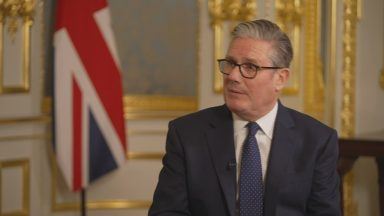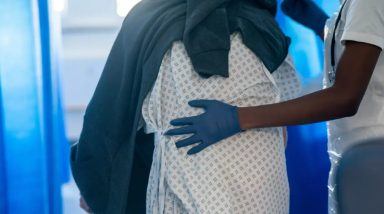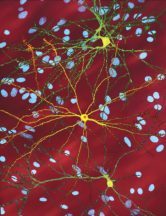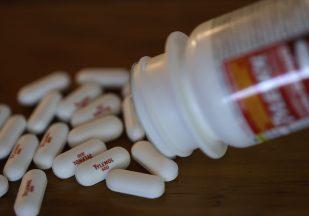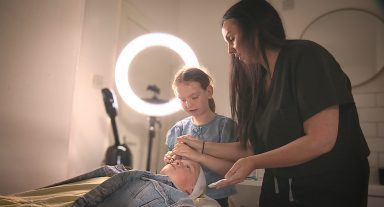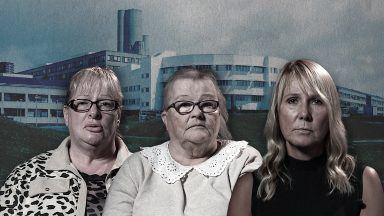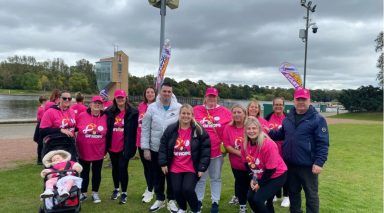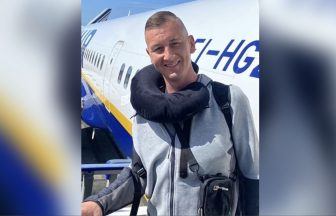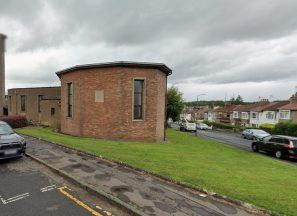Hospital staff are working to rebuild trust after human error led to an eight-week-old baby being given ten times the correct dose of paracetamol.
Professor Jann Gardner, CEO of Greater Glasgow and Clyde (NHSGGC), says a full investigation is under way into the incident at the Royal Hospital for Children.
Zohan Ul Hassan, who was born seven weeks premature on January 24, is in a critical condition after being given 200mg of paracetamol instead of 20mg.
His parents say they are “completely destroyed” and no longer trust the hospital to administer medication.
Ms Gardner, who has been in post since February, told STV News the incident is a “terrible situation” caused by human error.
She said: “Our staff are absolutely beside themselves about the impact of this on both baby and family. We have unreservedly issued an apology to the family.
“We are doing absolutely everything possible to make sure their care is of the best quality, and I know everything possible is being done to improve the outcomes in this case.
“We will do a full investigation internally to understand all elements of this, and we are also supporting the staff who have been involved in the incident as they are incredibly upset.
“It’s a terrible situation, and we are incredibly sorry for an error that was made in the calculation of a dose that was given to the baby.”
At six weeks old, Zohan started showing symptoms of a hernia on the left side of his abdomen – at which point he was admitted to the Royal Hospital for Children.
His father, Ahad, told STV News the baby underwent hernia surgery at the beginning of March and was discharged.
But a week later, his stomach began to swell again – doctors said he needed another hernia surgery, this time on his right-hand side.
Zohan was given the wrong amount of paracetamol during routine surgery last week.
The next day, Zohan began to have seizures, and he was transferred to the hospital’s paediatric intensive care unit.
He was placed on a ventilator and sedated – he has remained unconscious since.
NHSGGC has accepted responsibility for the overdose, and an internal investigation into the incident is under way.
But Zohan’s distraught family say that isn’t enough.
“We’ve completely lost all faith in the NHS – in a meeting with the hospital director yesterday, they apologised profusely, but that won’t make this all go away,” Ahad said.
“Our baby is still sick and an apology is not going to make him well. We just want to hold our poor baby and take him home.”
The couple from Ayr have been staying near the hospital so they can be near to Zohan.
“I insisted we be there anytime Zohan is given any medication – I no longer trust them with his care.”
Report – NHSGGC ‘must repair relationships’
Ms Gardner says she doesn’t believe the Zohan case is linked to a wider issue within NHSGGC, despite a number of high-profile incidents in recent years.
“I think this is an administration error,” she said. “We still work in human systems and sadly human errors do come about.
“Those who have been involved were appropriately trained and experienced but something went wrong in that process.
“I do think that this is an identified error and identification was within an hour. I think this has been a unique situation. I don’t think this is part of the wider piece but we are absolutely looking at all elements to learn.”
Ms Gardner was speaking as an independent report published on Thursday found NHSGGC “must repair relationships to improve care”.
The wide-ranging and comprehensive independent review of emergency departments within NHSGGC found a system under pressure, where unacceptable practices such as patients waiting on trolleys in corridors have become normalised.
Published by Healthcare Improvement Scotland, the report concludes that relationships need to be repaired between various groups of staff, supported by compassionate leadership.
Responding to the review, Ms Gardner said: “Emergency departments in Glasgow and right across Scotland are under enormous pressure because of the challenges of flow in and out of hospitals.
“We have already begun significant and ambitious transformation work to improve our system flow and we will be involving our staff in every part of that.
“I believe the work that we’re doing is always to provide high quality care. We have many systems and processes to pick up on where there are challenges.
“We have escalation processes already in place, but I would be unfair to my staff who have raised these challenges to say everything is fine.
“We need to listen to their voices. Today I absolutely feel assured that we are doing everything possible to provide the safest level of care that we can.”
Findings have national implications
The report makes 30 recommendations for NHSGGC, but the findings also have national implications, with a further 11 recommendations for Scottish Government and national agencies.
Robbie Pearson, chief executive of Healthcare Improvement Scotland, said: “It was important to us that this report was of value to the whole health and care system across Scotland, and that patients and staff across the country could benefit from this work.
“As a result, this report is one of the most far-reaching and comprehensive reviews we’ve undertaken, in terms of the breadth of evidence we’ve analysed, and the number of patients and staff that we engaged with.
“Moreover, we believe that the recommendations – including those that sit with our organisation to take forward – are the right ones to help deliver better patient care, both locally and at a national level, and supported by a positive culture where everyone works together to solve problems.”
Dr Adrian Boyle, president of the Royal College of Emergency Medicine (RCEM), said: “What this in-depth review does clearly evidence is the systemic problems in urgent and emergency care across Scotland – and the rest of the UK – including the endemic and pervasive issues of so-called ‘corridor care’, ambulance ‘stacking’, and the associated patient harm.
“RCEM strongly supports the national recommendations – particularly the development of a national standard approach to improving the quality and safety of urgent and unscheduled care in NHS Scotland, and improvement in the process by which staff can raise concerns and have faith that they will be addressed and action taken.”
Follow STV News on WhatsApp
Scan the QR code on your mobile device for all the latest news from around the country







